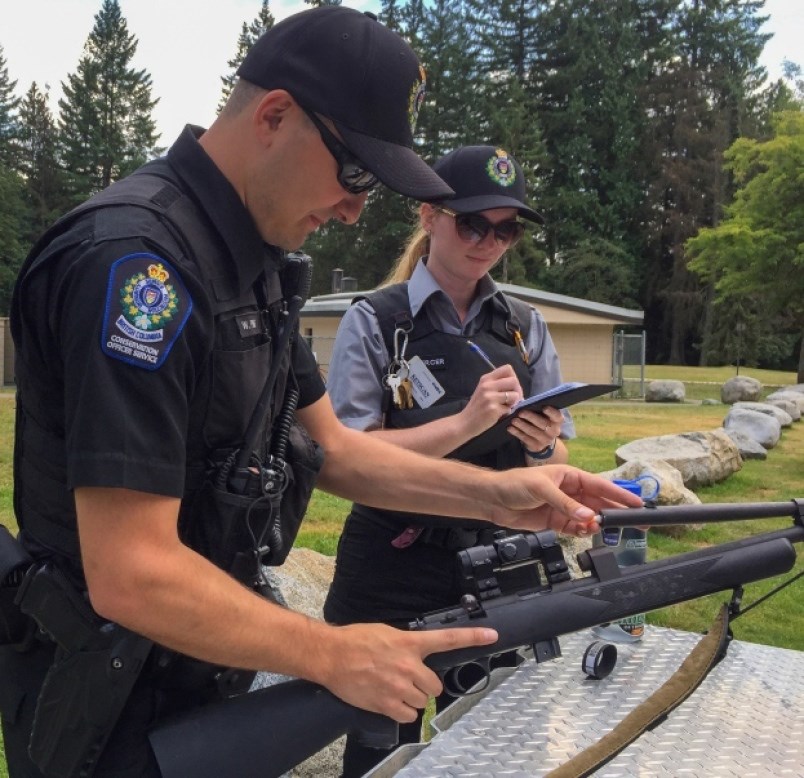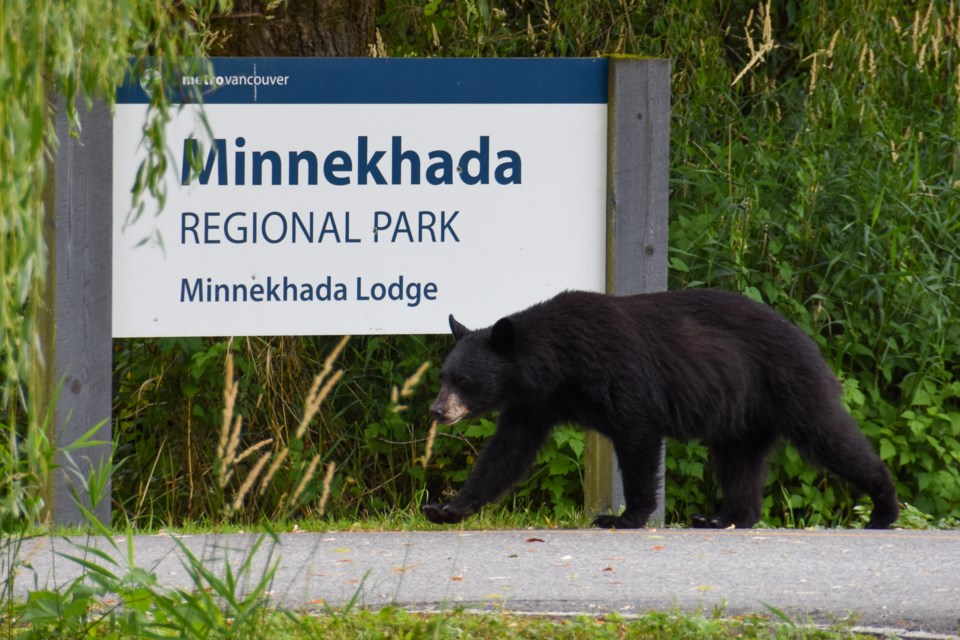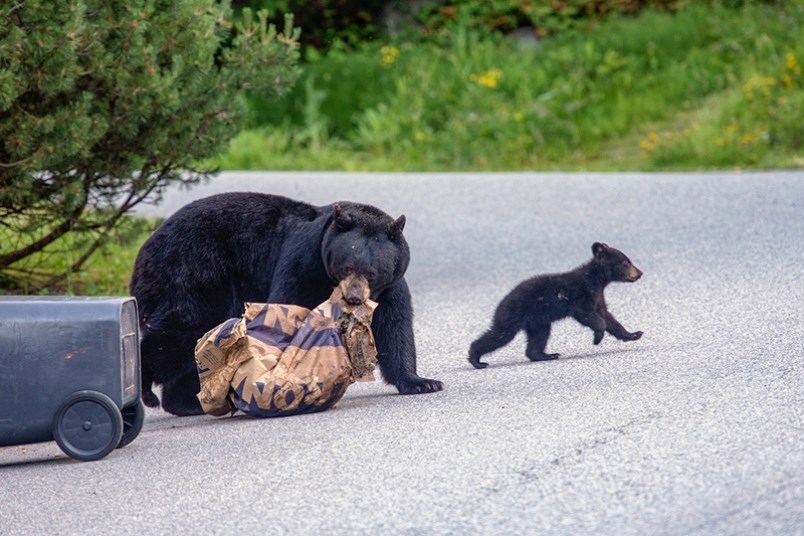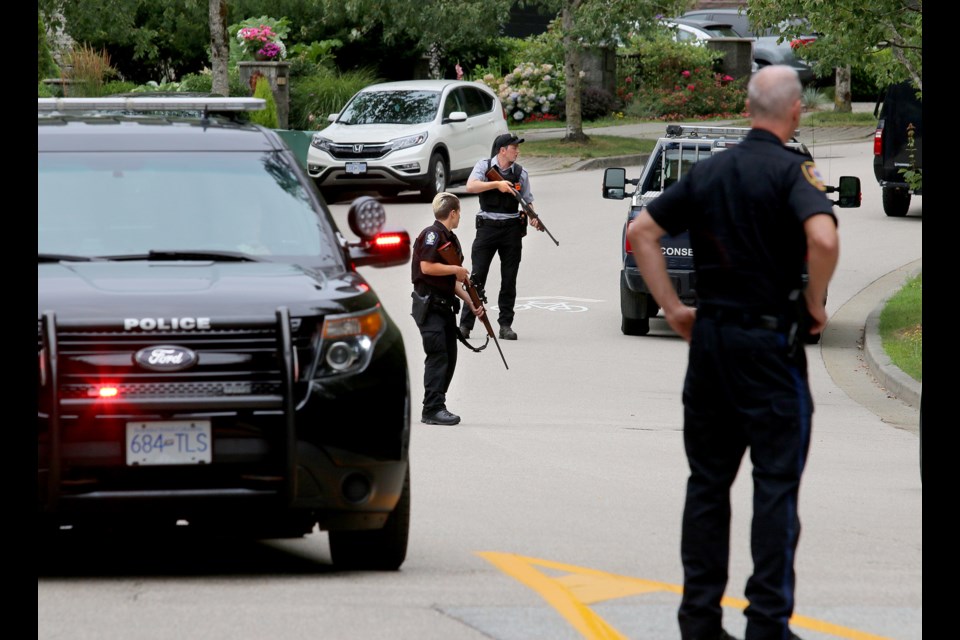A С����Ƶ environmental group is calling on the province to outfit conservation officers with body cameras to create more accountability when killing bears.
The measure is one of the three recommendations Pacific Wild put forward in a Jan. 1 open letter to George Heyman, the minister responsible for environment and climate change policy. Others include suspending the С����Ƶ Conservation Officer Service (С����ƵCOS) from communicating through official ministerial media channels — something the non-profit says conflates the separation of government and law enforcement — as well as renewing a call to make independent oversight of the С����ƵCOS a priority in 2020 so that it’s implemented before the next provincial election cycle.
Pacific Wild senior analyst Bryce Casavant — a former conservation officer who made headlines in 2015 for refusing to kill a pair of cubs on Vancouver Island — said he penned the letter in response to a Dec. 20 in which Heyman is quoted saying “not a single conservation officer relishes the thought of having to put down an animal, which is always a last resort for public safety.”
According to Casavant, evidence for killing large predators to safeguard public safety does not stand up to the province’s kill statistics: 4,341 black bears, 162 grizzly bears and 780 cougars in the previous eight years.
“We're running around responding to these wildlife complaints, in many cases simply sightings, and we're leaving it up to the individual officer to choose whether he's going to chase down an animal or choose when he's going to kill it,” said Casavant.
��

He points to an last July in Coquitlam, when conservation officers hunted down a family of bears near Mundy Park in Coquitlam. The С����ƵCOS had received several calls the preceding weeks indicating that a black bear mother and two cubs had lost their fear of humans and become conditioned to eating non-natural food sources like garbage.��
When officers tried to direct the bears up a tree to tranquilize them, two men and a woman from the neighbourhood started interfering with the officers, said the С����ƵCOS at the time. That’s when the officers called in the Coquitlam RCMP. All three were arrested and charged with obstructing the conservation officers under the Wildlife Act.
“Conservation Officers have a very difficult job to do associated to protecting public safety relating to dangerous wildlife,” С����ƵCOS Insp. Murray Smith said at the time. “Having the public interfere with this difficult job only exacerbates this difficult situation, not only as public safety threatened, but officer safety is compromised.”
But Casavant sees this as another example of the С����ƵCOS exaggerating the threat to public safety.
“[The bears] weren't actively in someone's home, they weren't in some child's bedroom swiping at him. There wasn't any immediate public safety risk that sparked an armed policing service running through a neighbourhood discharging firearms. These cubs were pursued by an officer into a ravine,” said Casavant.��
In the end, both cubs and mother were killed. One of the men arrested had his cell phone confiscated to be used later as evidence.
For a law enforcement body with no civilian oversight, it’s cases like these where body cams would offer a heightened level of accountability. In court, footage could be made available to both prosecution and defence, and should an oversight body be established in the future, it would offer an important record, said Casavant.��
In its open letter, Pacific Wild is calling on the ministry to direct the С����ƵCOS to outfit its field officers with body cameras no later than April 1, 2020.
��

It’s not the first group to call for mechanisms to improve transparency at the С����ƵCOS.��
Last September, the University of Victoria’s Environmental Law Centre put out its own call for of the С����ƵCOS. In response, a spokesperson for the Ministry of Environment and Climate Change told The Tri-City News the С����ƵCOS was developing an external oversight mechanism that would deal with complaints about its officers' actions.
The root of problem, said Casavant, is that the duty to lethally control large predators is not spelled out in legislation.��
After recently finishing a PhD looking at the history of the С����ƵCOS, Casavant said the narrative has only shifted in recent years from one that primarily responds to the concerns of farmers losing livestock to wild animals, to one that states conservation officers kill large predators to safeguard public safety.��
That shifting narrative, said Casavant, has evolved with С����Ƶ’s expanding human footprint as its roads and neighbourhoods eat into wildlife habitat. Last year, there were over 20,000 calls related to conflict with bears across the province, a spike Casavant argues is not a result of an exploding bear population but one that’s been dispersed into a new urban environment.
��

“It results in an increase of officer responses. It results in an increase of public complaints to their call centre. But it's completely artificial in the sense,” he said.
In a statement, a spokesperson for the ministry said "conservation officers are dedicated to protecting and preserving wildlife and always consider all options before euthanizing an animal.”��
Public safety, read the statement, is an officer’s first priority, noting the public shares responsibility in preventing conflicts with bears by reducing attractants in communities.
But Casavant said putting the blame on the public fails to address a clear direction for conservation service that kills hundreds of bears a year. Until proper oversight is put into place, he said body cams are the best first step in reducing the number those deadly encounters.
“С����Ƶ is not a shooting gallery for government employees,” said Casavant.




